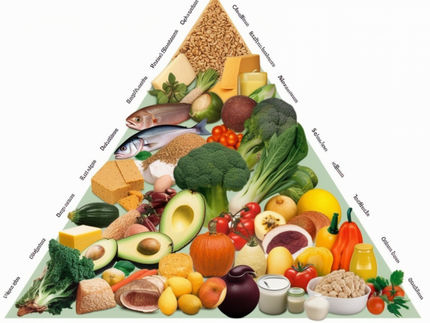Being full and better mood through plant-based nutrition?
Advertisement
What influence do plant-based meals have on mood and on feeling full compared to animal-based meals? Neuroscientists at MPI CBS in Leipzig investigated this in three smartphone-based studies in over 400 university cafeterias across Germany and have now published their findings in the journal Nature Science of Food.

Spencer Davis/unsplash
Current studies show that avoiding animal products such as meat and milk can reduce agricultural climate greenhouse gas emissions by 80 percent. However, the physiological and psychological factors of eating plant-based foods are largely unclear. What actually happens in our bodies after a plant-based meal compared to an animal-based meal? And who is most likely to choose which dish in the cafeteria? "Since dietary fiber is associated with improved signaling between the gut and the brain, we hypothesized that a plant-based meal would induce a higher feeling of satiety and mood compared to an animal-based meal," says Evelyn Medawar, who does research on food decision-making at the Max Planck Institute for Human Cognitive and Brain Sciences in Leipzig, Germany.
The scientists did not find profound effects of plant-based versus animal-based meals on satiety and mood.
In three large-scale smartphone-based studies, a total of more than 16,300 adults participated in over 400 university cafeterias across Germany. Using the iMensa app, the participants not only rated the dishes for taste, but also used emojis to vote on their mood and feeling of hunger before and after meal intake. The results show that - as expected – meal intake generally led to higher satiety and better mood - but regardless of whether it was vegetarian, vegan or meat. "Individuals who chose a plant-based meal reported a slightly better mood before the meal and a smaller increase in mood after the meal compared to individuals who chose an animal-based meal," Medawar explains. "Protein content also influenced post-meal satiety, although only slightly, while gender and taste rating had a strong effect on satiety and mood in general." Thus, more women and diverse individuals consumed plant-based dishes overall. For very poorly tasting dishes, post-meal hunger increased and mood decreased significantly. Whereas for very tasty dishes, hunger decreased significantly and mood increased moderately. In addition, plant-based dishes were more often eaten alone rather than in company, which may also have led to a lack of increase in mood through social interaction.
"Overall, however, we did not find profound effects of plant-based versus animal-based meals on satiety and mood," Evelyn Medawar summarized. The study data showed that of the meals chosen in the cafeterias, 55 percent were animal-based and 45 percent were vegetarian or vegan. The demand for plant-based dishes in German canteens is therefore very high. However, the palatability and protein content of plant-based dishes should be further improved.
Original publication
Other news from the department science

Get the food & beverage industry in your inbox
By submitting this form you agree that LUMITOS AG will send you the newsletter(s) selected above by email. Your data will not be passed on to third parties. Your data will be stored and processed in accordance with our data protection regulations. LUMITOS may contact you by email for the purpose of advertising or market and opinion surveys. You can revoke your consent at any time without giving reasons to LUMITOS AG, Ernst-Augustin-Str. 2, 12489 Berlin, Germany or by e-mail at revoke@lumitos.com with effect for the future. In addition, each email contains a link to unsubscribe from the corresponding newsletter.



























































